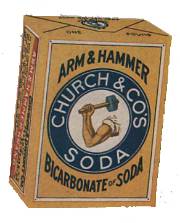 Banished Words List Day 2016
Banished Words List Day 2016
If you’ve read our post about LSSU’s 2015 Banished Words List, you already know you’re in for a treat. Drumroll, please. (We realize that phrase should be banished, too.) The official Banished Words List for 2016 is:
SO
So the word that received the most nominations this year was already banished, but today it is being used differently than it was in 1999, when nominators were saying, “I am SO down with this list!” Nominations came from across the country.
“So it’s getting really annoying. So can we please put a stop to this?” – David G. Simpson, Laurel, Md.
“It has become widespread to the point of an epidemic,” said a sickened John from Philadelphia, Penn.
CONVERSATION
Online publications invite us to “join the conversation,” which is usually more of a scream-fest. Gayle from Cedarville, Mich. wonders if “debate has become too harsh for our delicate sensibilities. Now we are all encouraged to have a ‘conversation,’ and everything will somewhat be magically resolved.”
PROBLEMATIC
“Anything that the speaker finds vaguely inconvenient or undesirable, such as an opposing political belief or bad traffic. Contrast things that are self-evidently taken to be problematic with, say, actual problems like a hole in the ozone layer or a job loss.” – Adam Rosen, Asheville, N.C.
STAKEHOLDER
A word that has expanded from describing someone who may actually have a stake in a situation or problem, now being over-used in business to describe customers and others.
“Often used with ‘engagement.’ If someone is disengaged, they’re not really a stakeholder in the first place. LSSU, please engage your stakeholders by adding this pretentious jargon to your list. – Gwendolyn Barlow, Portland, Ore.
“Dr. Van Helsing should be the only stake holder,” says Jeff Baenen of Minneapolis, Minn.
PRICE POINT
Another example of using two words when one will do.
“This alliterative mutation seems to be replacing the word ‘price’ or ‘cost.’ It may be standard business-speak, but must it contaminate everyday speech?” says Kevin Carney of Chicago, who provided an example in the March 19, 2015 issue of the New England Journal of Medicine, pg. 1171, which says, “Although the ‘price point’ of effective new drugs…may initially be out of reach for many patients…”
“It has no ‘point.’ It is just a ‘price.’” – Guy Michael, Cherry Hill, N.J.
SECRET SAUCE
“Usually used in a sentence explaining the ‘secret’ in excruciating public detail. Is this a metaphor for business success based on the fast food industry?” – John Beckett, Ann Arbor, Mich.
“It has become too frequent in business discussions. I am tired of it.” – Bill Evans, Clinton, Miss.
BREAK THE INTERNET
A phrase that is annoying online word-watchers around the world.
“Meaning a post or video or whatever will have so much Internet traffic that it will ‘break the internet.’ It’s being used for every headline and video. Ridiculous.” – Matthew Squires, Auburn, Mich.
“I hope the list doesn’t ‘break the internet.’ (How else would I read it next year)?” – Dean Hinrichs, Kansas City, Mo.
WALK IT BACK
A slower back-pedal?
“It seems as if every politician who makes a statement has to ‘walk it back,’ meaning retract the statement, or explain it in laborious detail to the extent that the statement no longer has any validity or meaning once it has been ‘walked back.’” – Max Hill, Killeen, Tex.
PRESSER
This shortened form of “press release” and “press conference” is not so impressive.
“Not only is there no intelligent connection between the word “presser” and its supposed meaning, this word already has a definition: a person or device that removes wrinkles. Let’s either say ‘press conference’ or ‘press release’ or come up with something more original, intelligent and interesting!” – Constance Kelly, West Bloomfield, Mich.
“This industry buzzword has slipped into usage in news reporting and now that they have started, they can’t seem to stop using it.” – Richard W. Varney, Akron, Ohio.
MANSPREADING
A word that is familiar to those in bigger cities, where seats on the bus or subway are sometimes difficult to find.
“Men don’t need another disgusting-sounding word thrown into the vocabulary to describe something they do…You’re just taking too much room on this train seat, be a little more polite…” – Carrie Hansen, Caledonia, Mich.
“The term itself is stupid, and the campaign and petition written by men’s rights activists claiming that men need to take up more space due to their anatomy, and that anti-manspreading campaigns are ‘male-bashing,’ are ridiculous. The problem is with people taking up too much space on the subway or any public mode of transportation. – Beth, Anchorage, Alaska
VAPE
Vape and vaping are used to describe the act of ‘smoking’ e-cigarettes (another strange word) since the products emit vapor instead of smoke.
David Ervin of Sault Ste. Marie, Ont., says he hopes the word “goes up in smoke.”
GIVING ME LIFE
The phrase refers to anything that may excite a person, or something that causes one to laugh.
“I suggest banishing this hyperbole for over-use,” says Ana Robbins, Sault Ste. Marie, Mich.
“This list of banished words is ‘giving me life’!”
PHYSICALITY
We had to include one for the sports fans. John Kollig of Jamestown, N.Y., says this is overused by every sports broadcaster and writer.
“I am not sure who is responsible, but over the last 12-18 months you cannot watch a sporting event, listen to a sports talk show on radio, or anything on ESPN without someone using this term to attempt to describe an athlete or a contest.” – Dan Beitzel, Perrysburg, Ohio
“Every time I hear them say it, I change the channel.” – Brenda Ruffing, Jackson, Mich.
We’re going to resubmit “sunset” for 2017. Stay tuned! (That also needs to be banished.)



![]()



 Banished Words List Day 2016
Banished Words List Day 2016